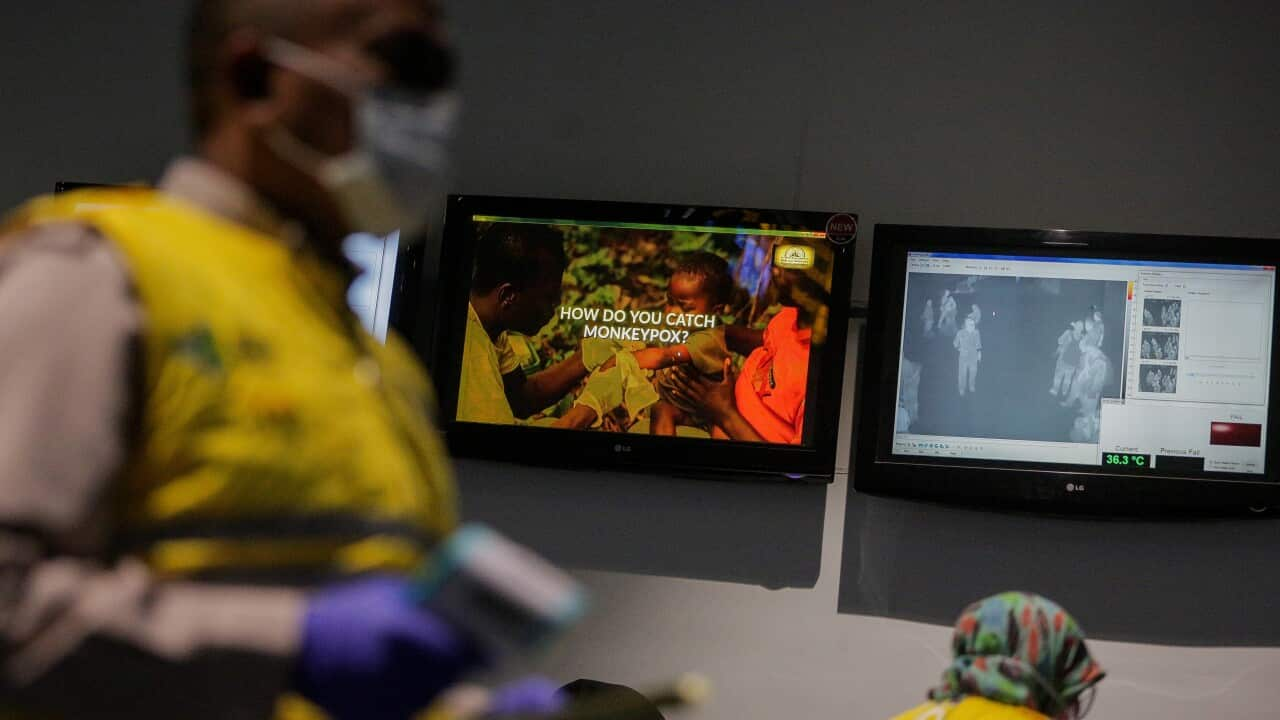A man in his 50s who recently returned to Sydney from Queensland has become the second person to be diagnosed with monkeypox in NSW and the third in Australia.
The man developed a mild illness several days after he arrived home and visited his GP before going to hospital, where tests confirmed he had monkeypox, NSW Health said.
It is the second case detected in NSW and is not connected to the first case, which was reported on May 20.
The man is receiving care in hospital.
A man in his 30s was confirmed to have developed monkeypox in Victoria after he developed mild symptoms on May 16.
Another man, in his 40s, developed the infection after returning from Europe and was reported by NSW Health on May 20.
Both cases had recently returned to Australia after travelling from Europe.
The latest case lives alone and investigations by NSW Health had not identified any high-risk contacts who need to isolate.
Several people who had low-level contact with the man have been told to monitor for symptoms.
NSW Chief Health Officer Kerry Chant said the general population did not need to be concerned by the monkeypox virus, which was rare and did not spread easily from person to person.
"NSW Health is providing further information to clinicians across the state today to assist with the identification and management of potential monkeypox cases," Dr Chant said.
"We will continue to work with GPs, hospitals and sexual health services across the state to provide advice on diagnosis and referral."
NSW Health is working with Queensland Health to identify any possible transmission.
Since Britain first reported a confirmed monkeypox case on 7 May, more than 550 confirmed cases of the disease have been verified in 30 countries outside of the west and central African nations where it is endemic, the WHO said.
The UN health agency's top monkeypox expert Rosamund Lewis said that the appearance of so many cases across much of Europe and other countries where it has not been seen before "is clearly a cause for concern, and it does suggest undetected transmission for a while".
"We don't know if it is weeks, months or possibly a couple for years," she said, adding that "we don't really know if it is too late to contain".
Monkeypox is related to smallpox, which killed millions around the world every year before it was eradicated in 1980.










